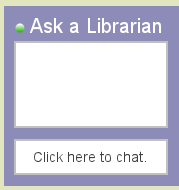Information Update - Fall 2009
Open Source Software: Why Libraries Are Jumping on the Bandwagon
- Most people probably don't think much about whether the software they are using is open source or proprietary. So, what's the difference? Open Source software is not necessarily better than proprietary software or vice versa. "The essence of open source is not the software. It is the process by which the software is created,"according to Steve Weber in his book, The Success of Open Source.
- Probably the majority of computer software applications that you use are proprietary. When you pay to purchase proprietary software, what you are really purchasing is a license for the right to have a copy of the software for your personal use. You can make one copy as a backup, but you can't share that copy with someone else, and you certainly can't change the software's source code, namely, the directions that tell the computer what to do when you input a command. Sometimes you must pay an annual maintenance fee in order to always have the most current version of the software. There are usually additional fees for support and training.
- Acquiring open source software (OSS) is usually free; however, that doesn't mean that there are no costs. According to Eric Lease Morgan, Head of the Digital Access and Information Architecture Department at the University Libraries at Notre Dame, the term "free"is ambiguous. He compared open source software to getting a free kitten. Even though you don't have to pay for the kitten, you will have to take the kitten to the vet to get its shots, and buy a litter box, food, and some cat toys. If the kitten scratches your furniture, you might even have to replace a sofa or a chair. The costs involved with using OSS usually include hiring new employees or contracting with an outside vendor to provide support and training. Sometimes support emerges from within the community of those who are using and developing the software.
- Although you have no warranty, assurance of quality, or user support with OSS, the quality of the software is usually very high because open source is all about collaboration and peer review. With OSS you have the freedom to copy, distribute and/or modify that software. Because users can look at the source code of open source software, errors can be corrected quickly. With proprietary software, errors are usually not addressed until a new version is released. With OSS, new versions are released often; new versions of proprietary software may take a year or more before they are released. Users can make changes to OSS which are likely to be incorporated into the next version of the software. Alternatively, those changes might be significant enough to create a different version of the software. Without the Internet, this level of sharing would not be possible.
- So why are libraries jumping on the open source bandwagon? Library administrators are finding that OSS applications can be viable alternatives to proprietary software. In the April 2009 issue of Library Technology Reports, John Houser states that, "Using open source software can help to reduce the cost of maintaining public-access workstations. The most obvious source of savings is in licenses."Some examples include Linux <www.linux.com>, an operating system; Open Office <www.openoffice.org>, containing word processing, spreadsheet, and presentation applications; Moodle <moodle.org>, an open source course management system; and Mozilla Firefox <www.mozilla.com/firefox>, an open source Web browser.
- OSS applications that are library specific include LibX, Koha, and VuFind. LibX <libx.org> is a browser plug-in that was created by the Virginia Tech libraries. When you highlight a term on a Web page, then right click, this plug-in automatically launches a search for that term in your library's catalog. Koha <www.koha.org> originated in New Zealand. It is an Integrated Library System that includes individual modules for circulation, cataloging, acquisitions, serials, reserves, patron management, and more. VuFind <www.vufind.org> is a "next-gen"online library catalog that was developed by a team led by Library Director Joe Lucia at Villanova. The Falvey Library is using this software to operate its catalog. VuFind incorporates such Web 2.0 features as book jacket images, browsing recommendations for similar books, book reviews, tagging personal favorites, MLA and APA style citations, and transmitting records for books via text message.
- The concept of "open source"has been compared to the idea of "open stacks"in libraries where materials are freely available to anyone. The philosophy of the American Library Association as stated in the Library Bill of Rights is that "all libraries are forums for information and ideas,"and that "Libraries should cooperate with all persons and groups concerned with resisting abridgment of free expression and free access to ideas."
- To learn more about open source, visit the Free Software Foundation Web site: www.fsf.org.
Bonnie Oldham

